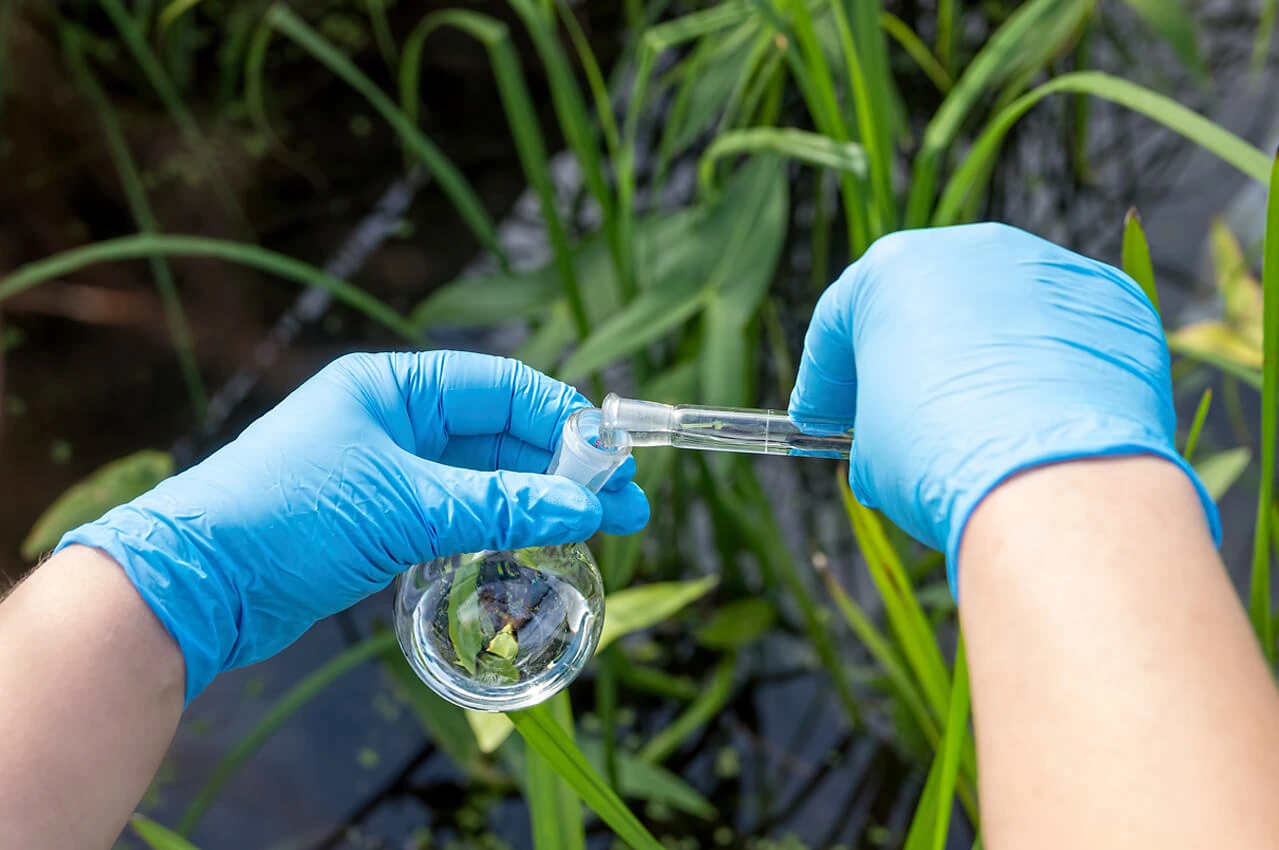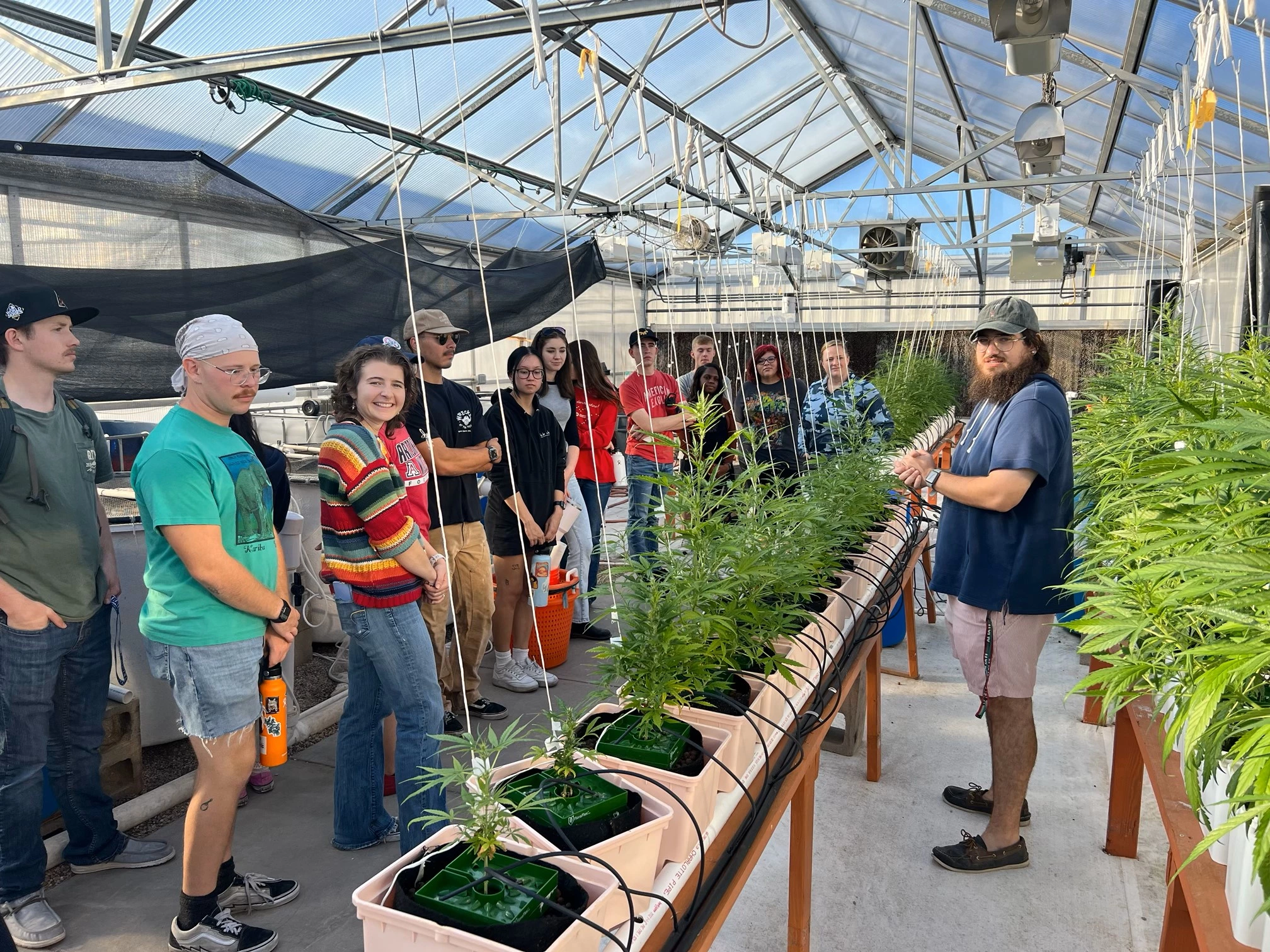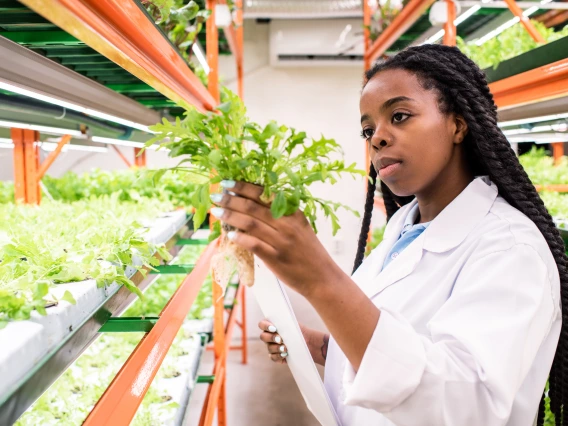
Applied Biotechnology
The B.S. in Applied Biotechnology teaches you how to use chemical and biological processes to address the world’s most pressing challenges in food production, health and sustainability. You'll choose courses in microbiology, plant biology, food science and nutrition.
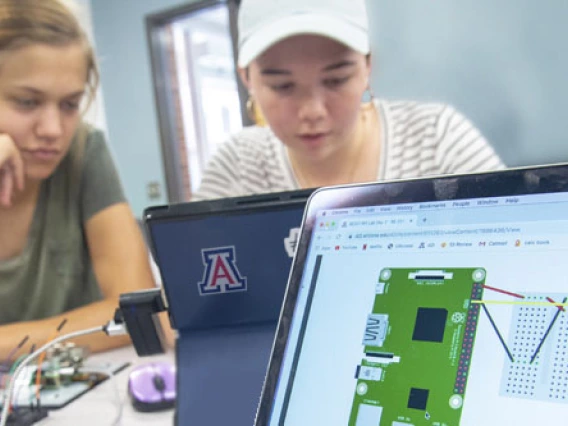
Biosystems Analytics and Technology
The B.S. in Biosystems Analytics and Technology brings together data science and applied engineering to make the most of our planet’s food, water and energy. You'll study precision agriculture, remote sensing, programming languages and cyberinfrastructure development.
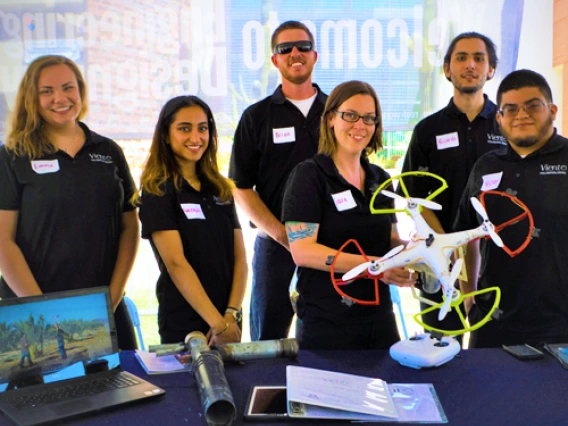
Biosystems Engineering
The B.S. in Biosystems Engineering combines hands-on engineering and life sciences to solve sustainability challenges. From engineering innovative irrigation systems to renewable resources, to greenhouse optimization, you'll lead industries into a cleaner future.
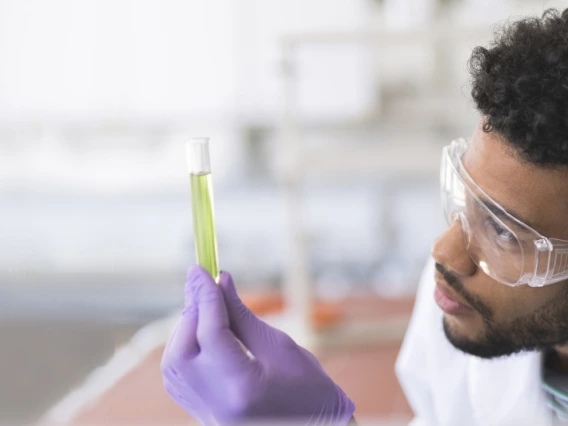
Microbiology
The B.S. in Microbiology prepares you to protect our planet from microbial threats and discover new ways to prevent and treat disease. By studying bacteria, viruses, fungi and protozoa, you’ll explore how small things can make a big impact in clinical and industrial settings.
Biosystems engineering, biotechnology & microbiology majors at the University of Arizona
Ready to explore the world of biosystem engineering, technology, analytics and microbiology? Connect with us to get a digital brochure on exclusive student resources, financial aid opportunities and sample 4-year plans for majors at the College of Agriculture, Life & Environmental Sciences.
College is a big investment, but a University of Arizona education may be more affordable than you think. No matter your background or family’s financial situation, you have options to make it manageable.
At Arizona, 9 out of 10 students receive financial aid. That means most students pay less than the estimates shown here. By maximizing your financial aid – scholarships, grants, loans, or work-study – you can lower your costs while earning a degree that will pay you back for a lifetime.
Estimated cost of tuition for first-year and transfer students:
- Arizona residents: $13,900/yr
- Non-Arizona residents: $42,300/yr
Get our guide to learn how students like you are funding their futures.
Application requirements vary based on your status as a first-time, transfer, international, online or returning student.
- Students who haven't completed 12+ transferable post-high school college credits are considered a first-time college student, and must meet Arizona's core competency requirements to be eligible to apply.
- You are considered a transfer student if you have completed 12+ transferable post-high school college credits.
- If you are under the age of 22 at the start of your desired term, you will need to meet the core competency requirements and have a minimum 2.0 cumulative college/university GPA.
- If you are 22 or older at the start of your desired term, you will need a minimum 2.0 cumulative college/university GPA.
- SAT/ACT scores are not required for general admission.
- You have the option to submit a resume and 500-word personal statement during your application.
Get the guide to find out more details about the application process and deadlines.
A degree in biosystems engineering, biotechnology or microbiology prepares you for careers and graduate programs in engineering, analytics, data science and medicine.
According to the U.S. Bureau of Labor Statistics1, median pay for careers in these fields includes:
- Microbiologists ($85,470 per year): study microorganisms such as bacteria, algae, and fungi.
- Bioengineers and Biomedical Engineers ($100,730 per year): combine engineering principles with sciences to design and create equipment, devices, computer systems, and software.
- Data scientists ($108,020 per year): use analytical tools and techniques to extract meaningful insights from data.
- Agricultural and food scientists ($76,400 per year): research ways to improve the efficiency and safety of agricultural establishments and products.
1U.S. Bureau of Labor Statistics. (2024b, April 17). Occupation finder. U.S. Bureau of Labor Statistics. https://www.bls.gov/ooh/occupation-finder.htm
Ready to start your engineering, analytics or microbiology career?
From our welcoming local community to the sunshine gracing our campus, every corner holds the promise of new adventures and personal growth. Your journey to becoming a leader in the future of biological systems engineering, technology and microbiology begins here. Sign up to discover what it means to be a part of the University of Arizona College of Agriculture, Life & Environmental Sciences.

